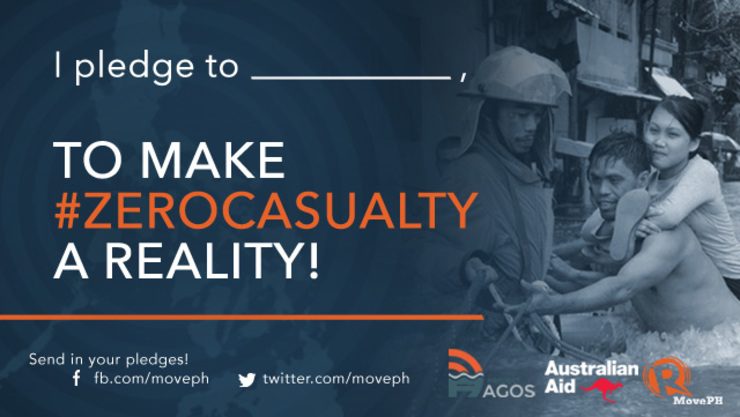SUMMARY
This is AI generated summarization, which may have errors. For context, always refer to the full article.

MANILA, Philippines – The 2012 World Risk Index considers the Philippines as one of the most disaster-prone countries in the world. Disasters cost the country an average of P19.7 billion ($440.3 million*) in damages every year – about 0.5% of the country’s annual gross domestic product (GDP).
Half of the country’s land area is economically at risk from multiple hazards such as floods, typhoons, and earthquakes. Four in every 5 Filipinos are vulnerable to the economic repercussions of natural disasters. The most affected are farmers, with agricultural damages estimated at P12 billion ($268.2 million) per year.
At least 20 typhoons enter the Philippine area of responsibility every year, disrupting livelihoods and exacerbating poverty conditions in the countryside.
We have seen the devastating effects these disasters have brought to Filipinos. The earthquake that hit the Visayas in 2013 destroyed world heritage sites and claimed many lives. Typhoons Ondoy, Glenda, and Mario paralyzed the country’s capital for days.
In the past decade, an average of over 1,000 people died from natural disasters every year. In 2013, Typhoon Yolanda (Haiyan) claimed the lives of at least 6,000 according to official reports.
And it’s only getting worse. With the effects of climate change becoming more evident, more livelihood and opportunities will be wasted. If nothing is done, more innocent lives will be sacrificed.
The National Disaster Risk Reduction and Management Council (NDRRMC) has a goal of “zero casualty” during disasters. But what does it take to achieve that goal?
#ZeroCasualty
In celebration of International Day for Disaster Reduction, the Australian Embassy in the Philippines and Rappler will initiate a conversation on the theme, “Making #ZeroCasualty a Reality” on October 8, 2014 from 8:00 am to 1:00 pm at the Asian Institute of Management in Makati City.
The event kicks off the collaboration between the Australian Embassy in the Philippines and Rappler/Move.PH in Project Agos, an information and communications platform that combines top-down government action with bottom-up citizen involvement to help communities adapt to climate change, and be ready for disasters.
Representatives from the national government, local disaster risk reduction and management offices, civil society, the private sector, bloggers, and netizens will take part in this conversation where participants will discuss the role each sector and individual has to play in disaster preparedness, response, and recovery to achieve the zero casualty goal. It will highlight the need for deeper collaboration and information sharing between various sectors.
Register for the Project Agos Launch: Making #ZeroCasualty a reality event on October 8, 2014:
Pledge and prepare
MovePH, Rappler’s civic engagement arm, will involve netizens in the conversation by asking them to help build upon the message of “Making #ZeroCasualty a reality.” Netizens will be asked to submit their contribution to the #ZeroCasualty goal based on their respective roles in society. The best thoughts and ideas will be culled from the tweets and posts in social media, and transformed into “Instaquotes” which will be published on Rappler.com and shared via social media.
Here’s how you can participate:
Step 1: Make your own pledge
Whether you’re part of the government or the private sector, or as an individual, you can help make zero casualty across the country a reality.
To make your own pledge, fill in the blank:
“I pledge to ________________ in order to make #zerocasualty a reality.”
Step 2: Post your pledge on social media
You can be creative in sharing your pledge. You may even tweet or share your commitment through photos or graphics.
Don’t forget to make your post public and encourage your friends and colleagues to submit their own pledge!
Step 3: Translate your online pledge to offline action
Most importantly, walk your talk. Translate your online pledge into concrete action that will help communities adapt to climate change, and become better prepared for disasters, response, and recovery.
We look forward to hearing about the success of your initiatives in the future. – Rappler.com
*$1 = P44.7
Add a comment
How does this make you feel?
There are no comments yet. Add your comment to start the conversation.